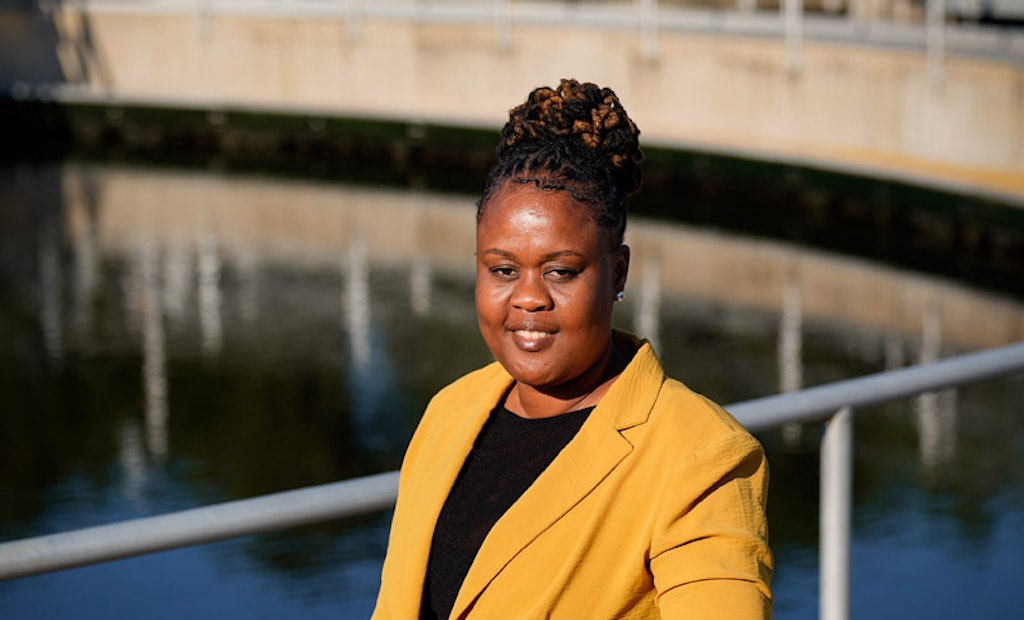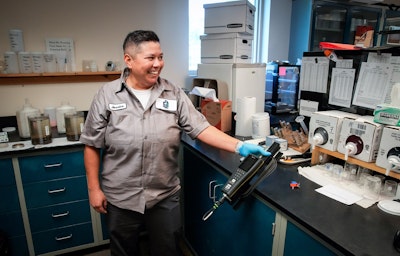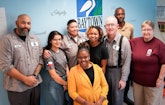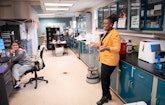
LaTia Jutan, superintendent of the City of Baytown Wastewater Division, at the Northeast Wastewater Treatment Plant, Baytown, Texas.
Photography by Jon Shapley
The best municipal leaders are driven by the desire to make their communities stronger. Count LaTia Jutan among them.
Taking advice from her mom, developing management skills in her own cleaning business and learning about wastewater treatment as an operator in training, Jutan...











